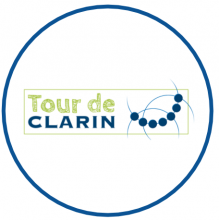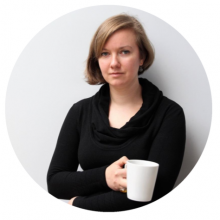News

The MERLIN corpus is a written learner corpus for Czech, German, and Italian in order to illustrate the Common European Framework of Reference for Languages (CEFR) with richly annotated authentic learner data.

Tour de CLARIN visits the Italian CLARIN consortium CLARIN-IT, which has been a full member of CLARIN since October 2015.

In this Tour de CLARIN blog post, we present an in-depth interview with Helge Dyvik, who is Professor Emeritus at the Department of Linguistics at the University of Bergen in Norway.

Pipe is a modular toolchain that allows researchers to combine multiple natural language processing tools in a unified framework. It provides the gluing code that is used to combine tools even if they are written in different programming languages and rely on conflicting library versions.

The Latvian FrameNet-annotated text corpus is a balanced, multilayered corpus annotated according to the latest frame inventory of Berkeley FrameNet.

Tour de CLARIN highlights prominent User Involvement (UI) activities of a particular CLARIN national consortium. This time the focus is on Latvia and Sanita Reinsone, a leading researcher at the Institute of Literature, Folklore and Art at the University of Latvia.

The seminar Tools and Resources for Digital Humanities Research was organized by the staff of the Artificial Intelligence Laboratory and brought together a wide range of humanities researchers, including philologists, journalists, political scientists, translators, librarians, historians and other representatives of the Humanities and Social Sciences

The coordinating centre of CLARIN Latvia is the Artificial Intelligence Laboratory, which has been conducting research on natural language processing and has provided access to different language resources, including corpora and lexicons, for almost 30 years.

The Place Names Database of the Institute of the Estonian Language (KNAB) is a multilingual and multiscriptual systematic database of geographical names covering Estonia and other countries

The annual Estonian Digital Humanities conference is a key event attended by both Estonian and European scholars in DH and a perfect place to address the challenging issues related to the interaction of scholars within different fields.